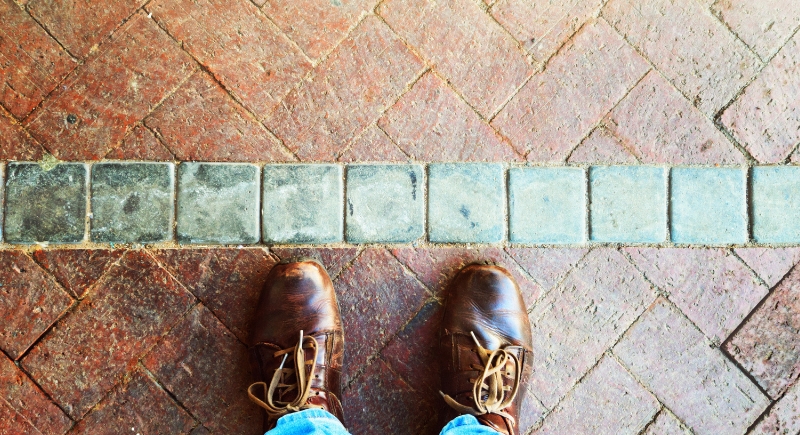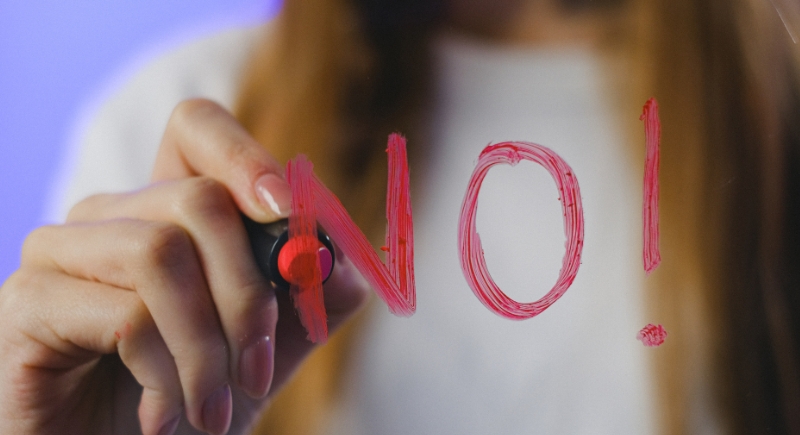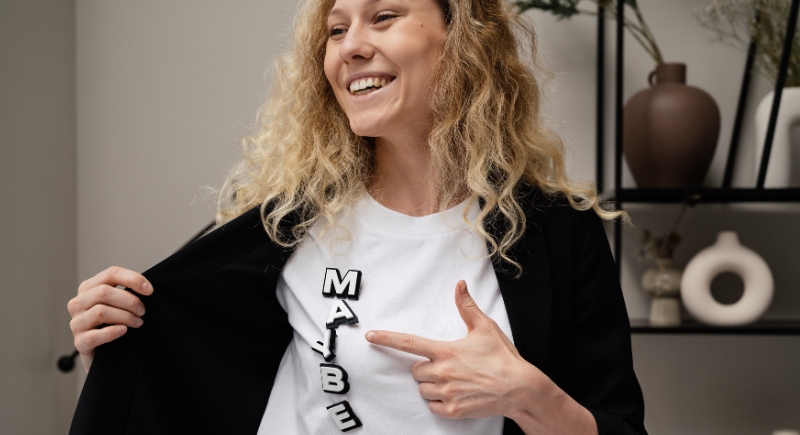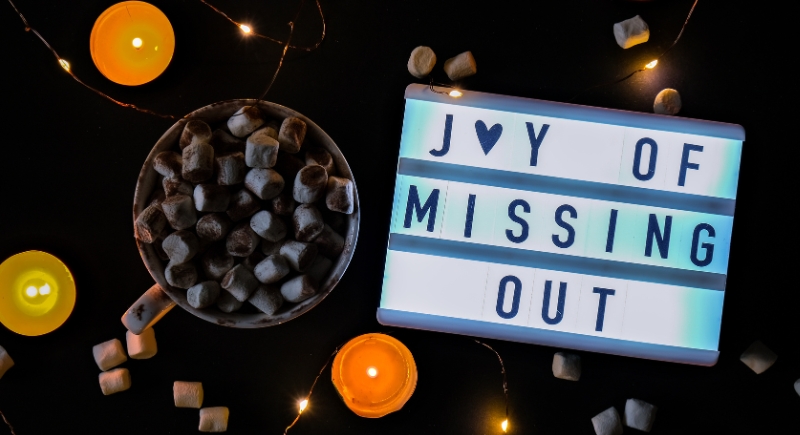Saying no sounds simple, but for many people, it feels anything but easy. Social pressure, guilt, and a desire to please others often override our instincts, which may lead to stress, burnout, or overcommitment. Learning how to say no kindly and confidently isn’t rude; it’s a practical life skill. Here’s why it matters and how to sharpen that skill like a pro.
No Makes Room for a Better Yes

Credit: Getty Images
Turning something down, instead of creating a void, opens space. Every “no” frees time and energy for things that align with your goals or values. Life coach Jo Irving notes that saying no to plans or tasks that drain you often translates into quality time for rest, hobbies, or people you actually enjoy.
Boundaries Only Work If You Use Them

Credit: Getty Images
Setting boundaries is one thing; maintaining them is another. Breaking your own rules, like checking emails after hours, teaches others that your limits are flexible. Consistency is key. Stick to your no, even if you feel tempted to cave under pressure. Otherwise, that “boundary” becomes more of a gentle suggestion than a real standard.
Saying No Is Scientifically Difficult

Credit: Getty Images
Studies show that many people agree to things, even unethical requests, just to avoid the discomfort of saying no. That tendency comes from social conditioning and something called "insinuation anxiety": the fear that refusing someone will make you look rude or unhelpful.
No Keeps Your Calendar Sane

Credit: Canva
Burnout often begins with one too many yeses. Declining a request at work or a social invite doesn’t make you a bad colleague or friend; it means you’re managing your time. Michelle Flynn, a performance coach, recommends asking yourself, “Would I want to do this tomorrow?” If the answer is no, you’ll definitely regret it later.
It’s a Confidence Booster in Disguise

Credit: Canva
Every time you clearly decline something, you’re reinforcing self-respect. It’s a quiet way of saying, “I know what I need.” Over time, that builds internal confidence and strengthens your decision-making muscle. Researchers have found that assertiveness directly supports higher self-esteem, especially when tied to protecting personal values.
Clear Language Gets Less Pushback

Credit: pexels
Soft phrasing like “I don’t know,” “Maybe,” “I guess I could,” invites negotiation. The author of The Power of Saying No recommends strong, structured statements: “I don’t take calls after 6,” or “I always reserve weekends for family.” These signal a firm boundary instead of a wobbly preference. The firmer your words, the less likely someone is to question them.
Delayed Replies Can Work Against You

Credit: pexels
The longer you wait to respond to a request, the harder it gets to say no. Avoid the stress spiral by giving a prompt, polite answer, even if it’s a soft decline. A simple “Thanks, but I’m unavailable” beats ghosting or dragging out the decision. Waiting often leads to a pressured yes or a messy backtrack, neither of which feels great for anyone involved.
“No” Is Self-Care in Action

Credit: Getty Images
Dr. Nicole Washington, a psychiatrist, describes no as a form of self-care that protects energy. Saying yes to everything, especially during high-stress periods, eats into recovery time. No also helps preserve mental health, sleep, and capacity for joy.
Practicing Builds the Skill

Credit: Getty Images
Saying no gets easier with repetition. Behavioral experts recommend rehearsing in low-stakes settings, like declining a free sample at a store or saying no to dessert. Over time, it starts to feel natural instead of nerve-wracking. This low-key training strengthens your response reflex for bigger situations, like declining projects or social plans that don’t serve you.
You Can Still Be Polite About It

Credit: Canva
“No” doesn’t have to sound harsh. Phrases like “Thanks so much, but I’ll pass this time,” or “I appreciate the offer, but I’m not available” keep things courteous. Acknowledging the invitation with kindness helps preserve the relationship, even while you decline.
Offering Alternatives Can Smooth the Edges

Credit: Canva
Sometimes a full “no” isn’t the only option. In workplace settings, suggesting a compromise or offering another contact shows you're engaged, just not the right fit. For example: “I’m unable to take this on right now, but Alex might be available,” or “I could help next month if the timeline shifts.” It’s a way to stay supportive while staying honest about your bandwidth.
Pre-Empt the Ask

Credit: Getty Images
If someone in your life regularly makes demanding requests, consider setting expectations ahead of time. Let them know you’re focused on other priorities or managing a tight schedule. That pre-emptive no can save both of you time, and it prevents the awkwardness of repeated refusals. More than avoiding people, it's about giving them a realistic idea of your availability upfront.
Avoid the Trap of “Maybe”

Credit: pexels
“Maybe” often translates to “I don’t want to, but I’m afraid to say no.” It prolongs the situation and confuses the person asking. Instead, get comfortable making clean decisions. A gentle no helps both parties move forward, while an ambiguous answer tends to drag out tension.
No Doesn’t Equal Rejection

Credit: Canva
Psychologist Sarah Jones St John explains that saying no isn’t a personal attack; it’s about limits. Remind yourself (and sometimes others) that you’re declining the request, not the person. You can respect someone’s work, admire their mission, and still say no to helping this time. When people understand the difference, it keeps relationships intact without overextending themselves.
Fear of Missing Out? Try JOMO Instead

Credit: Canva
FOMO makes it hard to say no, but the Joy of Missing Out (JOMO) is real. Skipping an event or opportunity can bring peace, not regret. That freedom to unplug, rest, or do something more meaningful to you is underrated.
